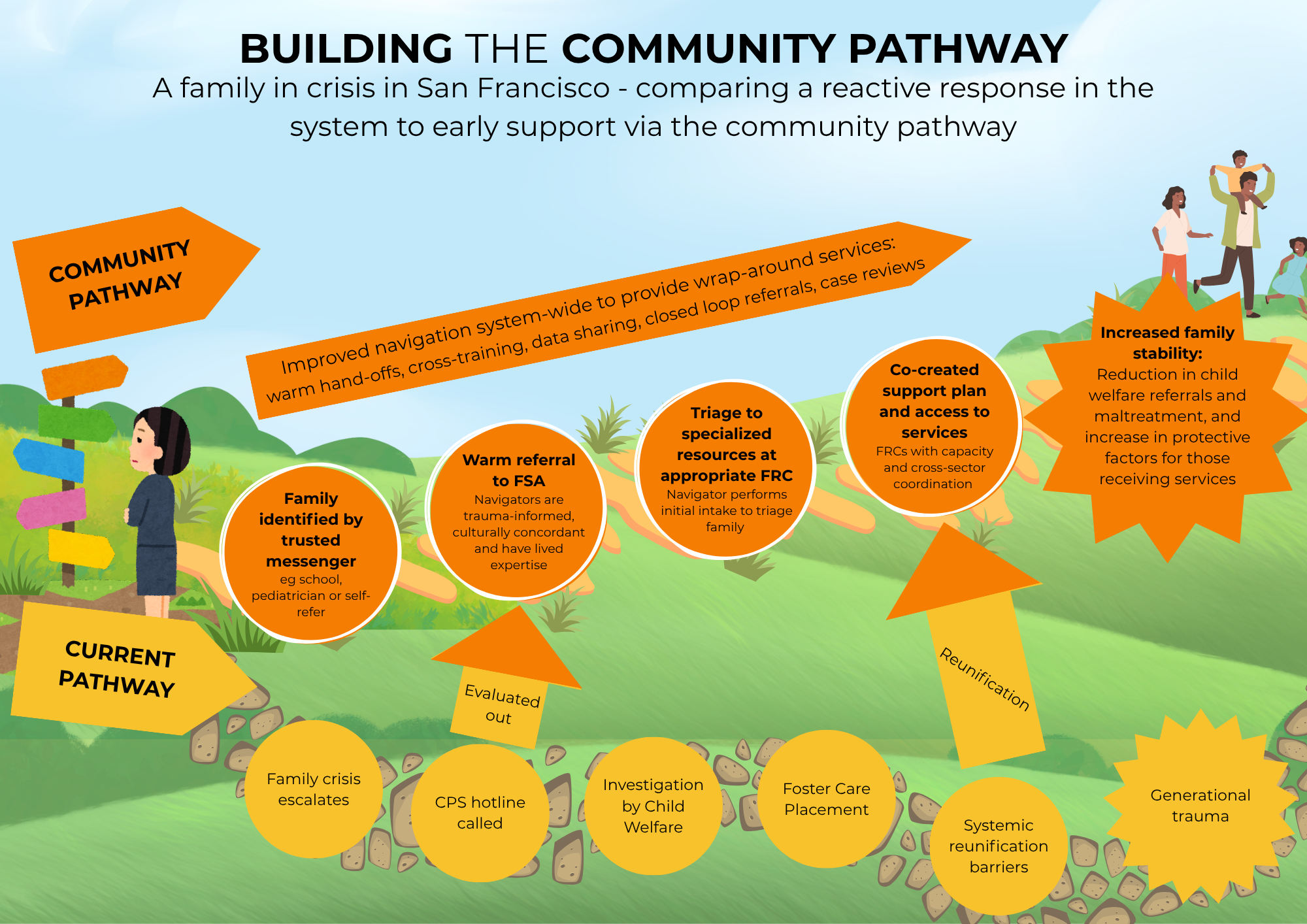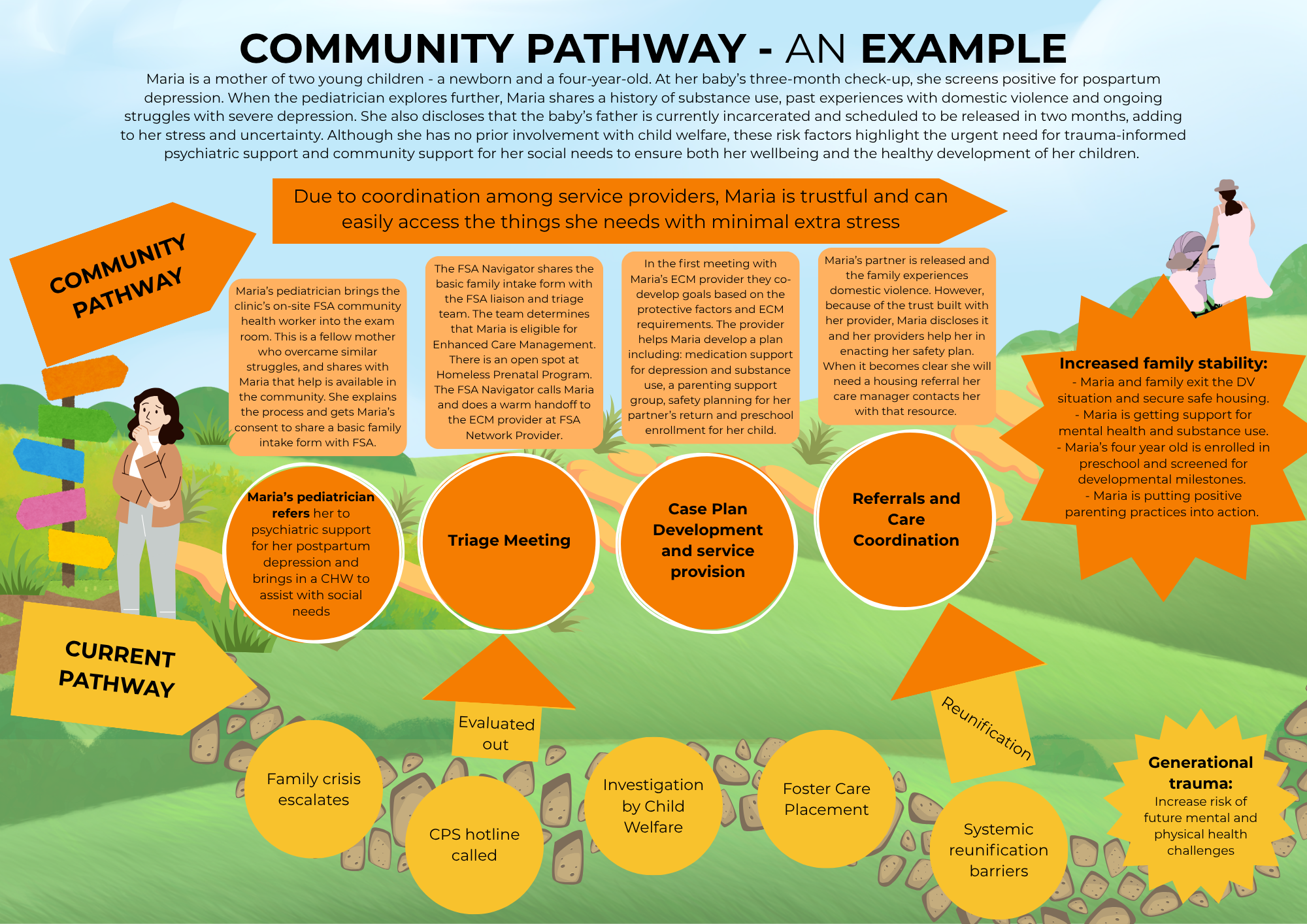Safe & Sound is leading a bold, transformative effort to reimagine how families in San Francisco—and ultimately across California—access the support they need to thrive.
Through the Community Pathway Initiative, we are building a scalable, upstream, community-based model designed to reduce child welfare and criminal justice involvement by providing timely, trusted, and trauma-informed care.
Rooted in early intervention and family-centered approaches, this model leverages a network of family support centers, including Family Resource Centers, and cross-sector partners to connect families to holistic, wraparound services before crises escalate.
According to our research, child abuse and neglect cost California over $16 billion in 2024. This represents thousands of missed opportunities for prevention and confirms that the costs of abuse and neglect for impacted children and their families are both significant and long lasting, while bringing into stark relief the financial cost of the current approach that prioritizes intervention after a crisis has occurred instead of an approach that focuses on prevention.
Our vision is to revolutionize family support so that all families have the resources they need to thrive. The Community Pathway focuses on engaging families in co-creating their support plans, coordinating services, and delivering evidence-based interventions that lead to stronger, more resilient families and communities. This holistic approach, supported by our ongoing collective impact, policy advocacy and capacity-building efforts, will create a robust, interconnected system that prioritizes upstream community-based supports, limits child welfare involvement, and ultimately transforms the landscape of family support in San Francisco and beyond.
Community pathways provide children, parents, and other caregivers access to holistic, culturally relevant, local prevention services from trusted providers in their community. Building and supporting a Community Pathway in San Francisco will help to identify families in need of support, and connect them to these community based services to prevent the need for child welfare involvement.
By ensuring families receive the right support at the right time, the Community Pathway model fosters stronger and more resilient communities. The cumulative impact of this approach is one that can be felt across generations, buffering children from exposure to adversity and breaking a cycle that places adult survivors of childhood trauma at greater risk for re-victimization and correlated detriments including chronic health and mental health issues, substance abuse problems, unstable employment, poverty, homelessness, and involvement in the criminal justice system. This unique approach holds powerful potential to transform the landscape of family support in San Francisco and beyond, deploying an evidence-based model that can easily be scaled across the State.


As the backbone of the San Francisco Family Services Alliance (FSA), Safe & Sound brings over five decades of experience in child abuse prevention, systems change, and community collaboration. We are uniquely positioned to lead this work—coordinating across agencies, advancing policy reforms, expanding public funding access, and providing technical assistance to strengthen local infrastructure.
Over the past three years, as part of our leadership role of the FSA and the Child Abuse Prevention Council for San Francisco, Safe & Sound has implemented critical foundational work which has positioned us to lead the Community Pathway Initiative. This work has included:
You can read more about this work on our Policy and Advocacy Page.